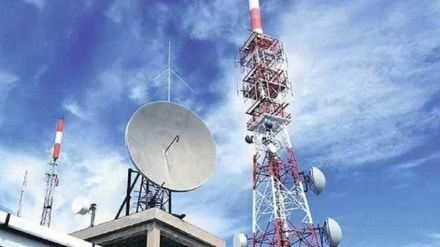The Cellular Operators Association of India (COAI) on Monday reiterated that the demand by telecom operators for a usage charge from over-the-top (OTT) communication apps is fair. The association, which represents major telecom operators, opposed the argument that levying such a charge on OTTs would violate the net neutrality principles.
According to telecom companies, OTT communication apps like WhatsApp, Telegram, etc, ride free on their network infrastructure without paying any fee for that. The telecom companies, therefore, want a similar kind of regulation for OTTs too based on same services, same rules concept.
“Certain entities with vested interests are misdirecting the issue of the need for a regulatory framework for the communication OTTs and the need of usage charge to be paid by OTTs to the TSPs (telecom service providers), by bringing in the aspect of net neutrality in a misleading manner, to make it a populist issue,” said SP Kochhar, director general of COAI. “We reiterate that all our member TSPs are committed to follow the net neutrality principles as per their licensing conditions,” Kochhar added.
The statement from COAI comes days after the Internet and Mobile Association of India (IAMAI) said that the proposal to charge OTTs for using the network of telecom operators is an attempt to dilute net neutrality in India and exploit the internet businesses by formalising rent seeking.
According to IAMAI, the model where the sending party network pays (SPNP) would also be a ‘death knell’ for the digital economy and the creative ecosystem which it sustains.
Net neutrality means open, equal internet for everyone, regardless of device, application or platform used and content consumed. According to representatives of OTT communication apps, if these apps have to pay a certain carriage fee or revenue to the telcos, then it would increase their costs, which will be transferred to the consumers and may hinder access to free or affordable internet use for a mass audience. Their major argument is that OTT communication services are different from that of telcos and can not be brought under the same service, same rules concept.
In counter, COAI said that net neutrality pertains to non-discriminatory treatment of content and has no nexus to the usage fee issue. “It is ironical that representatives of entities profiting themselves by levying charges on subscribers while riding free on the telcos’ network, are stating that paying for usage would effectively raise costs for users,” Kochhar said.
Lately, many OTT communication players are contemplating/already charging subscribers a significant fee for verified accounts, adding a further load to their revenues, COAI said.
The telecom companies argue that proposed usage charge on OTTs will help them in meeting their increased network investments to an extent, which will increase with growing internet consumption. Further, this will increase revenue for the exchequer as the charges paid by OTTs will be counted in the adjusted gross revenue (AGR) of telecom companies.
“The fact, though unfortunate, is that the proponents of such OTT service providers wish to continue to have free lunch at the expense of TSPs, while conveniently overlooking the fact that the TSPs continue to invest immensely towards building the nation’s digital infrastructure and delivering connectivity, access and opportunities for inclusive growth to the Indian citizens,” Kochhar added.
In November last year, COAI had written to the government to provide a legal framework and empower telcos to levy a usage charge on the OTT players for using their network infrastructure.
The department of telecommunications (DoT) has sought recommendations from the Telecom Regulatory Authority of India (Trai) to set up a legal framework for OTT apps and the regulator is soon expected to come out with a consultation paper on that.
